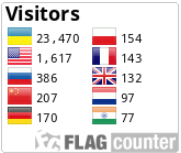CONCEPTUAL BASES OF ACADEMIC HONESTY FORMATION AT TEACHERS TRAINING
DOI:
https://doi.org/10.28925/2518-7635.2018.3.10Keywords:
academic integrity, students, student plagiarism, university.Abstract
This paper highlights academic integrity in the system of the future teacher professional training; the essence of the academic honesty concept, its contents in relation to the formation of personal and professional characteristics of a competent specialist is researched; the attitude to the academic dishonesty manifestations among the students of the specialty “Preschool education” is determined. Author examines the growing cases of violations of the academic integrity principles in higher education. The European experience in shaping the moral and ethical behavior of a future educators is highlighted as a model for Ukraine in struggle with tolerance to academic dishonesty manifestations in the educational process. On the basis of systematic analysis, it was proved that academic honesty is the rules and moral and ethical principles that all educators should use to build an atmosphere of mutual trust in the academic environment, updating the education system. Understanding and adopting academic norms based on systematic work and motivation is a necessary phenomenon for future educators. Updating the system of higher education is possible only with the active participation of students in reforms, providing suggestions on ways to improve the educational process. Many institutions of higher education in Ukraine already have "Ethical Codes" that define the principles of academic honesty at the legislative level. The next step towards restoring the academic culture of our country will be the creation of ethical commissions that will clearly regulate sanctions for non-compliance with ethical norms in the educational environment. It is concluded that academic honesty has gained special significance for the educational environment, and only joint efforts of the entire academic community can build the corporate culture of the university. It is necessary to deal comprehensively with tolerant attitude of students towards negative phenomena of violation of ethical principles in educational activities.
Downloads
References
Androshuk, G. (2015). Avtorske pravo i apropriaciya u mistectvi: mezhi dostupnogo [Copyright and apportioning in art: the boundaries of the available]. Intelektualna vlasnist v Ukrayini: naukovo-praktichnij zhurnal, 9, 13–20.
Andres, D., Moritz, M., & Oestreicher, W. (2014). Gute Begleitung wissenschaftlicher Arbeiten als Ansatz zur Prävention akademischen Fehlverhaltens. Information-Wissenschaft Und Praxis, 65 (1), 3–8. DOI: 10.1515/iwp-2014-0002.
Bacha, N. N., Bahous, R., & Nabhani, M. (2012). High schoolers' views on academic integrity. Research Papers in Education, 27 (3), 365–381. DOI: 10.1080/02671522.2010.550010.
Baird, C., & Dooey, P. (2014). Ensuring effective student support in higher education alleged plagiarism cases. Innovative Higher Education, 39 (5), 1–14. DOI: 10.1007/s10755-014-9285-4 (eng).
Barnhardt, B. (2016). The «Epidemic» of cheating depends on its definition: A critique of inferring the moral quality of «Cheating in any form». Ethics and Behavior, 26 (4), 330–343. DOI: 10.1080/10508422.2015.1026595.
Brandtner, A. (2014). Auf den Schultern von Bibliotheken: Warum koordiniert die Universitätsbibliothek Mainz das Projekt «akademische Integrität» an der Johannes Gutenberg-Universität Mainz? Information-Wissenschaft Und Praxis, 65 (1), 33–39. DOI: 10.1515/iwp-20140013.
Bretag, T., & Green, M. (2014). The role of virtue ethics principles in academic integrity breach decision-making. Journal of Academic Ethics, 12(3), 165–177. DOI: 10.1007/s10805-014-9209-z.
Chubb, J., & Watermeyer, R. (2016). Artifice or integrity in the marketization of research impact?: investigating the moral economy of (pathways to) impact statements within research funding proposals in the UK and Australia. Studies in Higher Education, 42 (12), 2360–2372. DOI: 10.1080/03075079.2016.1144182.
Fendler, R. J., & Godbey, J. M. (2016). Cheaters should never win: Eliminating the benefits of cheating. Journal of Academic Ethics, 14 (1), 71–85. DOI: 10.1007/s10805-015-9240-8.













